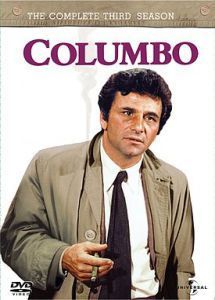GETTING ALONG WITH YOUR DOCTOR: TEN TIPS
Doctors are expected to display and cultivate a good “bedside manner,” but you as the patient can also take certain measures to help make your doctor visit(s) successful and productive.
1) If possible, schedule your visit early in the day. If a first appointment is available, grab it! Your doctor is likely to be fresher, sharper and more pleasant in the earlier morning hours.

OKAY, MAYBE NOT THAT HAPPY
(Shutterstock)
By the way, if you are visiting an urgent care center, do not wait until the last half hour before closing time in the expectation that “the place will be empty” and that you will be in and out in no time. When you arrive, you will find that everyone else seems to have had exactly the same idea. Rushed urgent care doctors make more mistakes and take more potentially jeopardizing shortcuts at closing time. This is when diagnoses get missed and a brain hemorrhage is called a migraine, or an appendicitis is diagnosed as gastroenteritis.
2) Be on time for your appointment! Yes, I know doctors often keep you waiting, but it’s seldom, if ever, deliberate. Some doctor offices have a policy that if you are 15 or 30 minutes late, you become a “no-show.” Trust me, there is nothing more anguishing than arriving late only to be told that your visit has been canceled and the doctor will not see you. If you’re running late, call the office, give the staff your ETA and ask them if it’s okay. Chances are they will give you a break.
3) If you aren’t feeling too ill to smile at your doctor and say hello as he or she comes into the room, it will be much appreciated. Believe it or not, doctors like pleasant patients as much as patients like them to be pleasant and open. You don’t need to be over-chatty, but affable is good. If you’re not getting a warm vibe back from the doctor, give it a few minutes, s/he may come around. Doctors are human too.
4) State what your visit is about at the very start. “The reason I’m here, doc, is that I’ve had a pain in my right side for the past two weeks.” Saying something snarky like, “Isn’t it all in the record?” is a really bad way to start. I’ll let you into a secret: Even if you spent 30 minutes in the waiting area filling out what seemed to have been endless questions about your previous history, the doctor may glance at it but probably won’t spend that much time reading it in depth. He or she will want to hear everything from you again.
5) If you have more than one issue, say so: “I’m here about two things that have been bothering me, Doctor,” and lay them down at the start. What drives doctors up the wall is the “Columbo Syndrome,” from the Lieutenant Columbo detective series in which Columbo is famous for saying, “Oh, just one more thing,” just when the murder suspect thinks the interview is over.

THE INIMITABLE COLUMBO
(Shutterstock)
Doctors’ stomachs sink if as the visit is concluding, you say, “Oh, I forgot to mention one thing–I’ve been having some chest pain recently.” You do yourself a disservice, because now the doc is focused on moving on to the next patient, and s/he may not give this “new” symptom full attention. In fact, you may get a brushoff.
6) While discussing your symptoms, avoid telling the doctor that you believe you have disease x or y because that’s what your brother/sister/wife/husband/nephew/cousin or the Internet said. Doctors are simply nonplussed when a patient comes for a consultation and seems to have more confidence in what a layperson has declared about their illness than in what the doctor’s diagnosis is.
7) In the same way, doctors have issues with statements like, “I need an antibiotic for my sore throat.” Even worse is, “My other doctor always gives me an antibiotic for my sore throat and it takes it away.” Worst is, “My sister gave me some of her antibiotics and I got better, so I want some more.”
8)Doctors love it when a patient brings a written summary of your past illnesses (or that of your dependent), past surgeries/hospitalizations with the dates all nicely noted down. The physician can then easily write it into the clinical record later on.
9) On the other hand, oddly enough, doctors cringe when a patient brings in a long list of symptoms and reads each item off one by one.
10) It might surprise you how much a doctor appreciates a simple “thank you.”
Foreign Policy In Focus columnist Kwei Quartey M.D. is a crime novelist and physician who grew up in Ghana. He is now based in Los Angeles. His fourth novel, Gold of the Fathers, will be published in February 2016. Follow him at @Kwei_Quartey.



